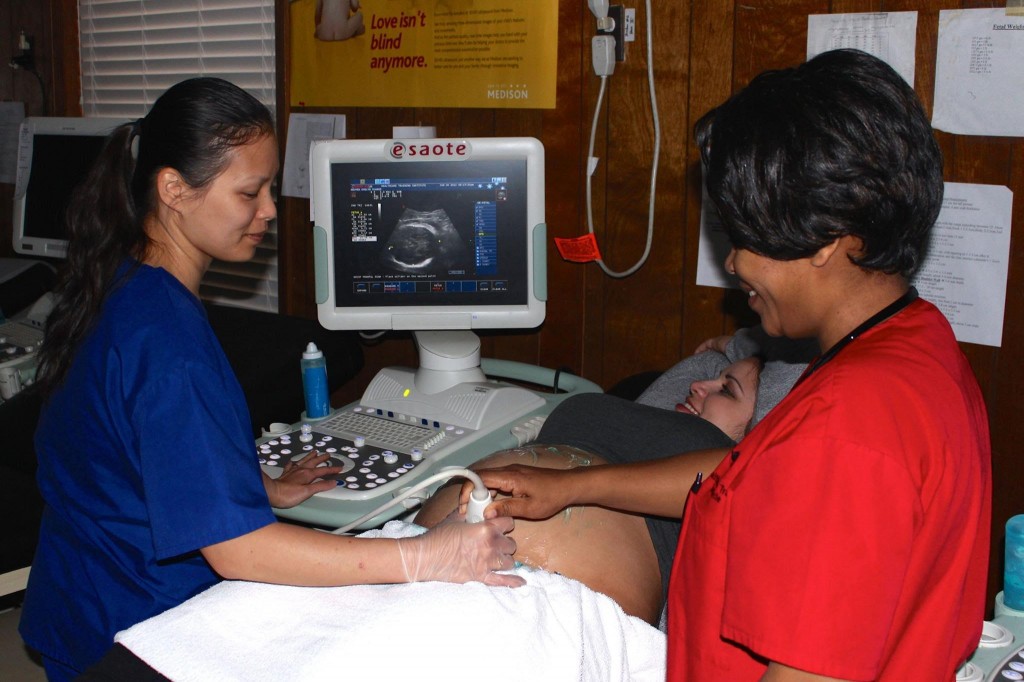Become Ultrasound Technician

Introduction to Ultrasound Technology

Ultrasound technology has become a crucial diagnostic tool in the medical field, allowing healthcare professionals to visualize internal organs and tissues without the need for invasive procedures. As an ultrasound technician, also known as a diagnostic medical sonographer, you will play a vital role in helping doctors and other healthcare professionals diagnose and treat a wide range of medical conditions. In this blog post, we will explore the world of ultrasound technology and provide you with the information you need to become a successful ultrasound technician.
What is Ultrasound Technology?

Ultrasound technology uses high-frequency sound waves to produce images of internal organs and tissues. These sound waves are beyond the range of human hearing and are emitted by a device called a transducer, which is placed on the patient’s skin. The sound waves bounce off the internal structures and return to the transducer, which converts them into electrical signals. These signals are then used to create images on a screen, allowing the ultrasound technician to visualize the internal structures and diagnose any potential problems.
Types of Ultrasound Exams

There are several types of ultrasound exams, including: * Abdominal ultrasound: used to visualize organs such as the liver, gallbladder, and kidneys * Pelvic ultrasound: used to visualize the reproductive organs, such as the uterus and ovaries * Cardiac ultrasound: used to visualize the heart and its blood vessels * Musculoskeletal ultrasound: used to visualize muscles, tendons, and ligaments * Vascular ultrasound: used to visualize blood vessels and diagnose conditions such as blood clots and varicose veins
Education and Training

To become an ultrasound technician, you will need to complete a formal education program in diagnostic medical sonography. These programs are typically offered at the associate’s or bachelor’s degree level and can be found at community colleges, universities, and vocational schools. The program will include both classroom and clinical training, where you will learn about: * Anatomy and physiology: the study of the human body and its internal structures * Ultrasound physics: the study of the principles of ultrasound technology * Patient assessment: how to evaluate patients and prepare them for ultrasound exams * Ultrasound instrumentation: how to operate and maintain ultrasound equipment * Image analysis: how to interpret and analyze ultrasound images
Clinical Experience

Clinical experience is a crucial part of any ultrasound technology program. You will have the opportunity to work with experienced ultrasound technicians and gain hands-on experience with ultrasound equipment and techniques. This will help you develop the skills and confidence you need to succeed in this field.
Certification and Licensure

While certification and licensure requirements vary by state, most employers require ultrasound technicians to be certified by a professional organization such as the American Registry for Diagnostic Medical Sonography (ARDMS). To become certified, you will need to pass a written exam and complete continuing education requirements to maintain your certification.
Skills and Qualities

To be successful as an ultrasound technician, you will need to possess certain skills and qualities, including: * Communication skills: the ability to communicate effectively with patients and healthcare professionals * Technical skills: the ability to operate and maintain ultrasound equipment * Analytical skills: the ability to analyze and interpret ultrasound images * Attention to detail: the ability to pay close attention to detail and ensure accurate results * Compassion and empathy: the ability to provide patient care and support
Job Outlook and Salary

The job outlook for ultrasound technicians is excellent, with the Bureau of Labor Statistics predicting a 19% increase in employment opportunities through 2028. The median annual salary for ultrasound technicians is around 68,000, although salaries can range from 50,000 to over $90,000 depending on experience and location.
Specializations

As an ultrasound technician, you may choose to specialize in a particular area, such as: * Cardiovascular sonography: the use of ultrasound to diagnose and treat heart and blood vessel conditions * Neurosonography: the use of ultrasound to diagnose and treat brain and nervous system conditions * Obstetric and gynecologic sonography: the use of ultrasound to diagnose and treat conditions related to pregnancy and women’s health * Pediatric sonography: the use of ultrasound to diagnose and treat conditions in children
📝 Note: It's essential to research and understands the specific requirements and regulations in your state and country to become a successful ultrasound technician.
Continuing Education

As an ultrasound technician, you will need to complete continuing education requirements to maintain your certification and stay up-to-date with the latest technologies and techniques. This may include attending conferences, workshops, and online courses, as well as participating in professional organizations and networking with other ultrasound technicians.
| Education Level | Program Length | Median Salary |
|---|---|---|
| Associate's Degree | 2 years | $60,000 |
| Bachelor's Degree | 4 years | $70,000 |
| Master's Degree | 6 years | $80,000 |

In summary, becoming an ultrasound technician requires a combination of formal education, clinical experience, and certification. With the right skills and qualities, you can enjoy a rewarding and challenging career in this field. Whether you choose to specialize in a particular area or work in a general ultrasound setting, you will play a vital role in helping doctors and other healthcare professionals diagnose and treat a wide range of medical conditions.
As we reflect on the information provided, it’s clear that a career as an ultrasound technician can be both fulfilling and challenging. With the right education, training, and certification, you can succeed in this field and make a positive impact on the lives of your patients.
What is the average salary for an ultrasound technician?

+
The median annual salary for ultrasound technicians is around 68,000, although salaries can range from 50,000 to over $90,000 depending on experience and location.
What type of education is required to become an ultrasound technician?

+
To become an ultrasound technician, you will need to complete a formal education program in diagnostic medical sonography, which can be found at the associate’s or bachelor’s degree level.
What are the different types of ultrasound exams?

+
There are several types of ultrasound exams, including abdominal, pelvic, cardiac, musculoskeletal, and vascular ultrasounds, each used to visualize different internal structures and diagnose various medical conditions.



